Learn If You Have the Right Soil By Taking Our Training Course
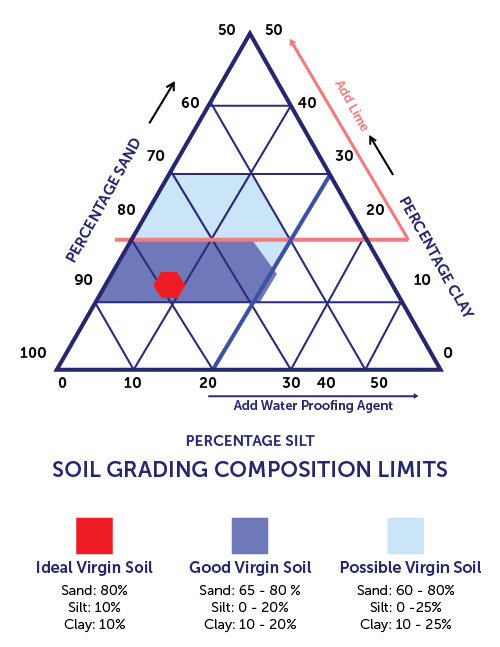
Take a handful of soil and Smell for Organics
Soil should not smell musty or rotten
If the soil smells like potting soil or soil used in agriculture it has organics and should be avoided.
Place your hand with the soil inside of your palm under a slow trickle of water.
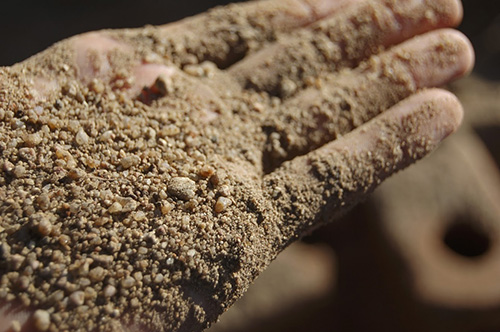
Results:
Composition wash test
a) Soil does not stick to your hands and many large grained pebbles and rocks can be seen – Gravely Soil
b) Soil is very granular and easy to wash off – Sandy Soil
c) Soil sticks a lot and does not wash away easily from hand – Silty Soil
d) Soil makes a thin film and if massaged into palm sticks a lot into the lines of hand – Clayey Soil
Record Results
On form
Take picture
Send to Dwell Earth
Learning Points:
Rule Out Organics
Get Initial Estimations of Soil
Take a handful of soil and slowly massage in water until the soil reaches a bread dough like consistency.
Break off a chunk 1/2 the size of your thumb.
Roll it out into a worm the size of a pen on a slightly moistened nonstick surface or in the palm of your hand.
When pen diameter is reached or surpassed pick up the worm and observe the flexibility and cohesiveness by letting it hang off your hand as you move your hand slowly.
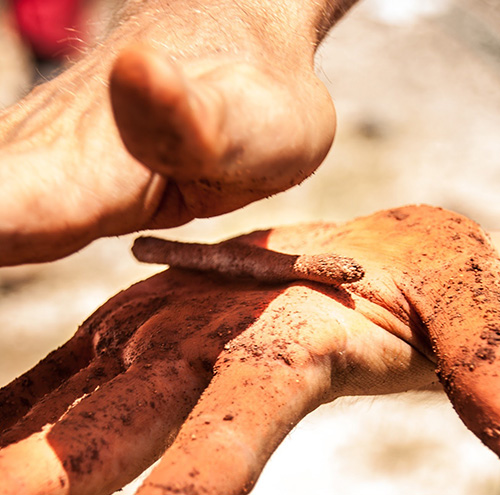
Results:
Soil Composition Pen Test
a) Can not get close to pen diameter – Gravely
b) Crumbles just before pen diameter – Sandy
c) Rolls out smaller than pen – Silty or Clayey
Soil Plasticity and Cohesiveness
a) Could not make soil worm
b) Soil worm has little to no flexibility and breaks quickly
c) Soil worm is flexible and sticks together even while being moved around and swung slowly
Record Results
Learning Points:
Soil Plasticity and Cohesiveness
Soil Composition by Texture
Take the remaining soil that has been moistened into bread dough constancy
Make a ball with a 2in (50mm) diameter and stab with a knife
Results:
Soil Composition Stick test:
a) Little to no material sticks to knife Gravely/Sandy
b) Small amount of material sticks to knife Sandy/Clay
c) Lots of material sticks to knife Clayey
Record Results
Learning Points:
Soil Composition
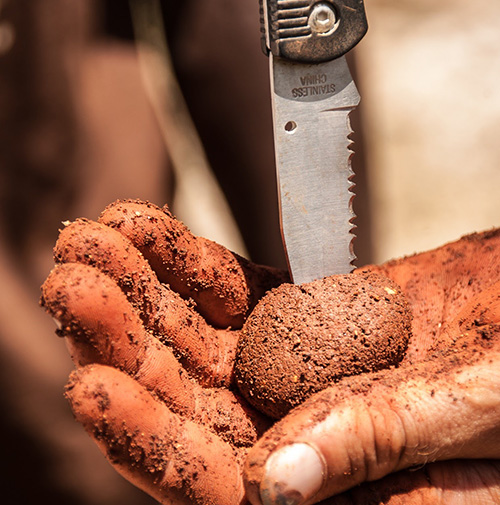
Remake the ball.
Cut ball in half.
Look at flat surface of cross section and move the ball back and forth in the light observing the shining in the light.
Results:
Silt vs Clay
a) Surface is dull and does not shine in the light – Silt
b) Parts of the surface are shiny – Some Clay
c) The entire surface is very shiny – Very Clayey
Record Results
Learning Points:
Examining if there is more silt than
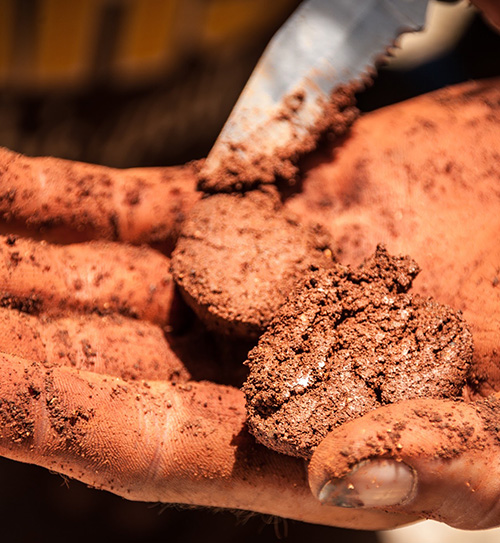
Find a flat bottomed clear jar. Use a permanent marker of piece of tape or a permanent marker to mark a fill line 1/2 of the way from the bottom of the jar.
Add dry soil to fill line.
Fill the Rest of the Jar with Water leaving 1in (25mm) of space at the top.
Shake vigorously until soil is completely suspended in the water.
Wait 5 minutes and shake again.
Let Settle Overnight.
Do not disturb the jar
Measure how much the settled soil has risen above the fill line
Results:
Soil Expansiveness
a) Soil did not expand over the line – Non Expansive
b) Soil expanded 1/8in (3 mm) over the line – Slightly Expansive
c) Soil expanded 1/4in (6 mm) over the line – Expansive
d) Soil expanded 1/2in (12 mm) or more over the line – Very Expansive
If soil is expansive it is not good for making compressed earth blocks. Take a sample from a new area.
Record Results
Learning Points:
Expansiveness of Soil
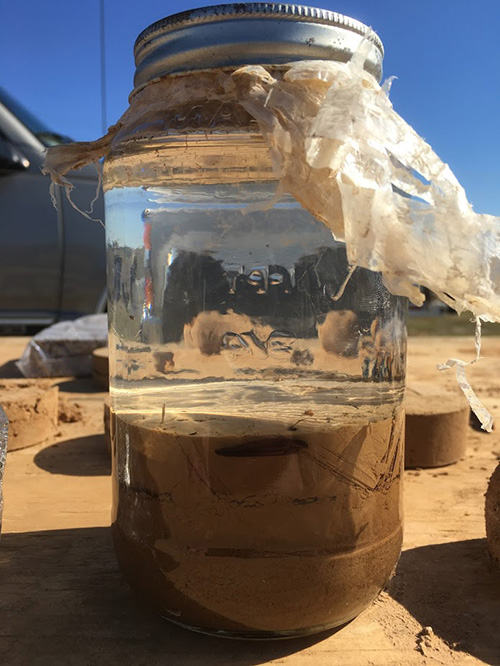
Take a close up picture of the jar.
Make sure multiple samples are labeled correctly.
Estimate the approximate percentage of gravel, sand, silt, and clay.
Results:
Soil Expansiveness
a) Percentage Gravel ________
b) Percentage Sand ________
c) Percentage Silt ________
d) Percentage Clay ________
Record Results
Learning Points:
Soil Composition

